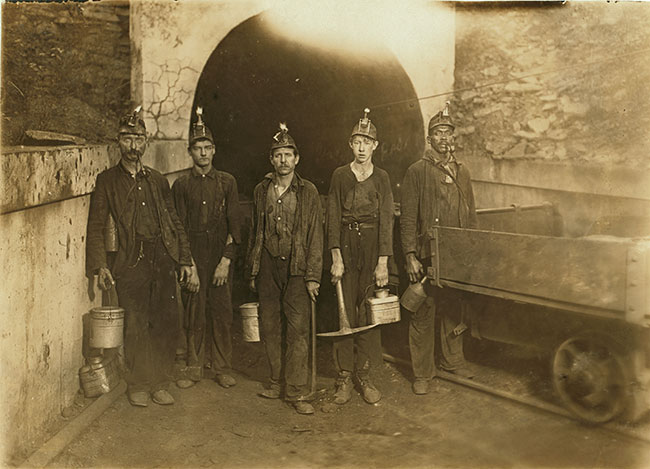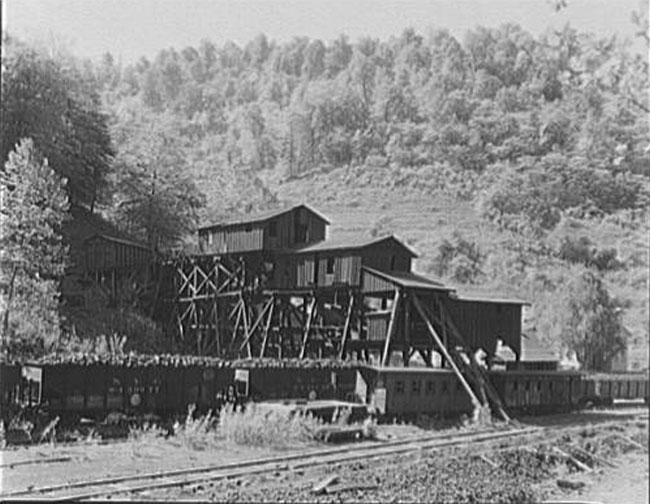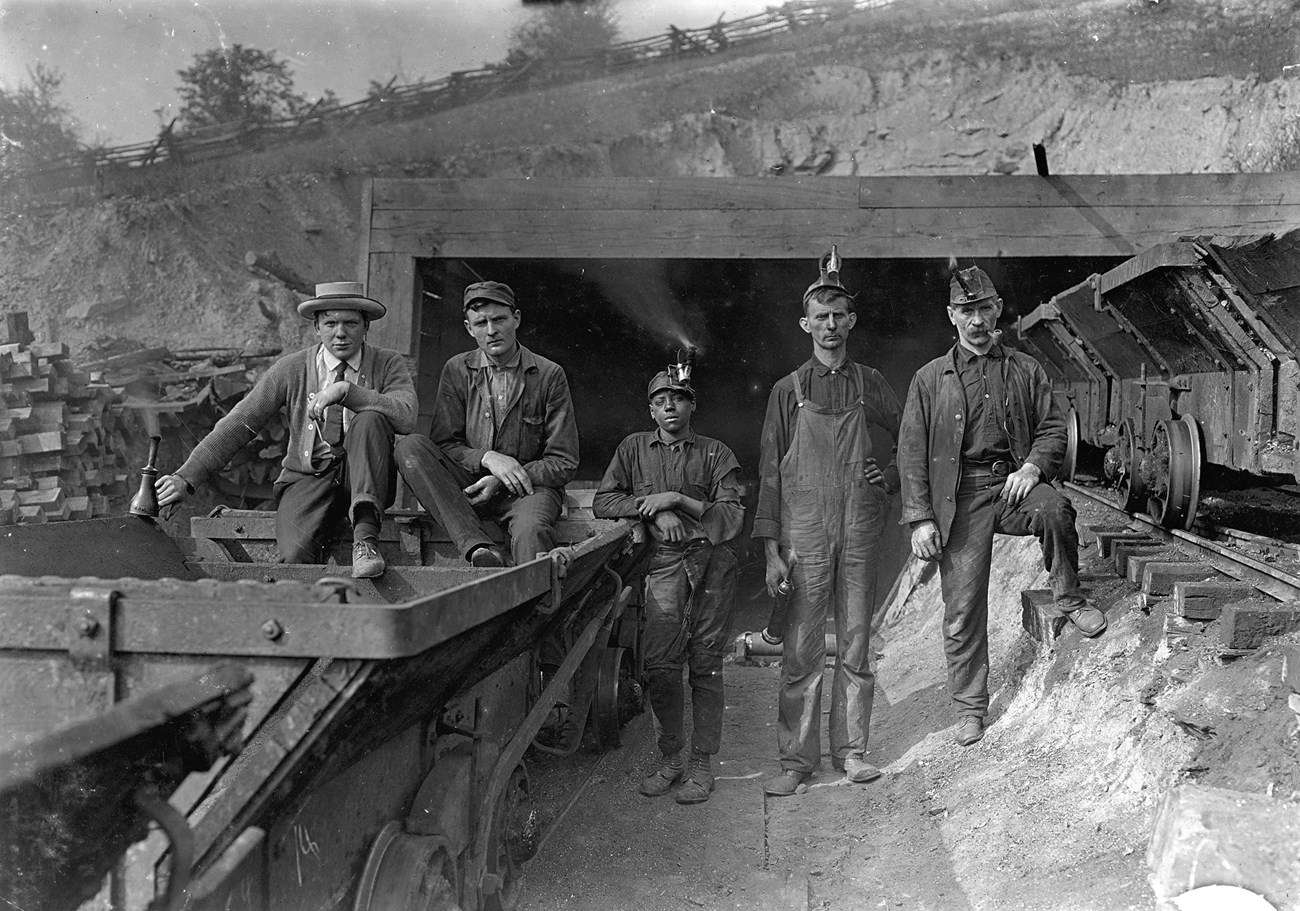Battle of Blair Mountain
Turning Points
National History Day 2024
|
|
|
|
|
|
|
|
|
West Virginia yielded 89.4 million tons of coal in 1917, a significant difference compared to their production of just 4.7 million tons in 1887.

Courtesy of - Library of Congress

Courtesy of - Library of Congress
"Until some limitations are placed upon the absolutism of these absentee coal operators in West Virginia, the government of West Virginia will continue to be Russianized and the people can be naught but serfs"
- Samuel Gompers, Union Leader
A coal miner's day was nothing short of grueling and dangerous. Explosives were commonly used to loosen coal seams, and if a miner was fortunate enough to survive the aftermath, most would later succumb to the effects of black lung from the chemical exposures.
________________________________________
From 1890 to 1917, an estimated 26,000 miners were killed on the job, and around 12,000 were injured at work each year, some crippled for life.

Courtesy of - Library of Congress
In addition to their horrific working conditions, miners resided in subpar living conditions with inadequate subsistence. They were usually cheated on their wages and were paid in company 'scrip' that could only be used to make purchases in company stores, allowing bypass to wage changes with store price increases.
|
|
|
|
|
|
|
|
|
|
|
|
|
|
|
|
Miners were often subject to exploitation by their coal operators, similar to living under an authoritarian system. Absolute control was exercised over their housing, salary, and expenditures. Mining companies utilized their political and economic power to maintain their authority over their 'company towns,' where they had control over all public and business affairs.
"Explosions. ...The gas. The gas would set the dust off. ...I was working there when it blowed up. We was on the outside and everything fell in front of us"
- Paul Maynard, Mine Worker.
"Huddled under canvas that flapped and strained at the guy ropes, in the high winds I found hundreds of families gathered about pitifully small fires. In most cases the tent dwellers were living on the bare frozen earth, the most fortunate having simply a strip of oil cloth or carpet as floor."
- Neil Burkinshaw, Journalist
"The coal operators was robbing them[,] it was in slavery then. If they wanted to pay you and you worked 10 hours and they said eight they paid eight. No protection."